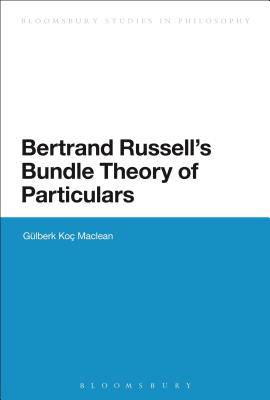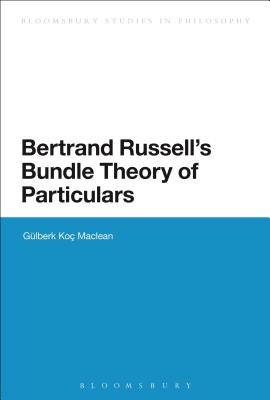
- Afhalen na 1 uur in een winkel met voorraad
- Gratis thuislevering in België vanaf € 30
- Ruim aanbod met 7 miljoen producten
- Afhalen na 1 uur in een winkel met voorraad
- Gratis thuislevering in België vanaf € 30
- Ruim aanbod met 7 miljoen producten
Zoeken
€ 322,45
+ 644 punten
Uitvoering
Omschrijving
Bertrand Russell's Bundle Theory of Particulars presents and evaluates Russell's arguments for two competing theories on the nature of particulars at different stages in his career: the substratum theory of particulars (1903-1913) and the bundle theory of particulars (1940-1948).
Through its original focus on Russell's little known metaphysics in the later part of his career, this study explains why Russell's theory of particulars is relevant today. It argues that a Russellian realist bundle theory is indeed the best explanation of similarities and differences that we observe around us thanks to the ontological economy such a theory provides and its strength and completeness as a theory of the nature of reality.
Tackling the major criticisms levelled against the realist bundle theory - the problem of individuation, the problem of necessity, and the problem of analyticity - this study presents and defends a tenable Russellian bundle theory which can answer the objections. Bertrand Russell's Bundle Theory of Particulars is a novel and significant contribution to Russell scholarship.
Through its original focus on Russell's little known metaphysics in the later part of his career, this study explains why Russell's theory of particulars is relevant today. It argues that a Russellian realist bundle theory is indeed the best explanation of similarities and differences that we observe around us thanks to the ontological economy such a theory provides and its strength and completeness as a theory of the nature of reality.
Tackling the major criticisms levelled against the realist bundle theory - the problem of individuation, the problem of necessity, and the problem of analyticity - this study presents and defends a tenable Russellian bundle theory which can answer the objections. Bertrand Russell's Bundle Theory of Particulars is a novel and significant contribution to Russell scholarship.
Specificaties
Betrokkenen
- Auteur(s):
- Uitgeverij:
Inhoud
- Aantal bladzijden:
- 184
- Taal:
- Engels
- Reeks:
Eigenschappen
- Productcode (EAN):
- 9781472512666
- Verschijningsdatum:
- 8/05/2014
- Uitvoering:
- Hardcover
- Formaat:
- Genaaid
- Afmetingen:
- 156 mm x 234 mm
- Gewicht:
- 435 g

Alleen bij Standaard Boekhandel
+ 644 punten op je klantenkaart van Standaard Boekhandel
Beoordelingen
We publiceren alleen reviews die voldoen aan de voorwaarden voor reviews. Bekijk onze voorwaarden voor reviews.








